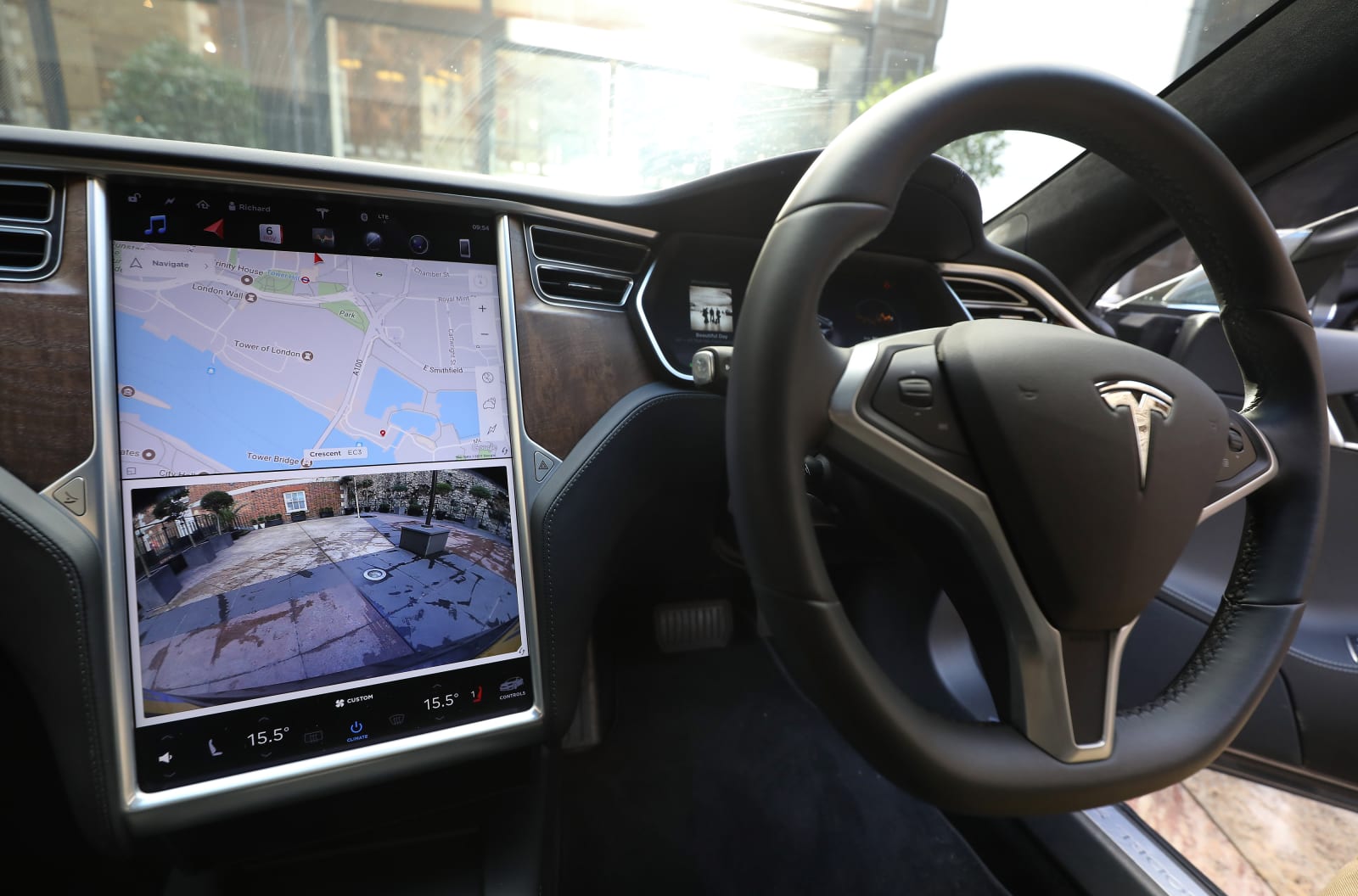 When it comes to interacting with the smart home and IoT devices, we’re pretty much living in the age of the smart speaker. But imagine if the same could be accomplished by touching or making gestures on a standard wall. That’s exactly what a collaboration between researchers at Carnegie Mellon University and Disney Research has accomplished. Dubbed “Wall++,” it turns … Continue reading
When it comes to interacting with the smart home and IoT devices, we’re pretty much living in the age of the smart speaker. But imagine if the same could be accomplished by touching or making gestures on a standard wall. That’s exactly what a collaboration between researchers at Carnegie Mellon University and Disney Research has accomplished. Dubbed “Wall++,” it turns … Continue reading![]()
After Math: Get rich or die tryin
Posted in: Today's Chili
How can we tell black women we love them yet endorse artists that tell them otherwise?
 The official debut of the LG G7 ThinQ is only a few days away now, but LG continues to tease some of its biggest features. The latest is LG’s continued focus on high quality, something the company’s previous flagships have been known for, such as the inclusion of quad-DACs. This time around, the G7 ThinQ will feature a “Boombox Speaker” … Continue reading
The official debut of the LG G7 ThinQ is only a few days away now, but LG continues to tease some of its biggest features. The latest is LG’s continued focus on high quality, something the company’s previous flagships have been known for, such as the inclusion of quad-DACs. This time around, the G7 ThinQ will feature a “Boombox Speaker” … Continue reading![]()


Huawei is one of the fastest-growing smartphone vendors on the planet and it would be catastrophic for the company if it were prevented from licensing Android for its devices. However, with the company being investigated for a sanctions violation in the United States that still remains a possibility. Huawei reportedly wants to have options on the table in case it’s banned from licensing Android which is why it’s now believed to be developing its own mobile operating system.
The concerns stem from the recent ban enforced on ZTE, another Chinese company, by the U.S. Department of Commerce. ZTE was found to have bypassed U.S. sanctions on Iran and has now been banned from sourcing components from suppliers in the United States for seven years. There are concerns that this ban could also mean that Google will not be able to license Android to ZTE.
The South China Morning Post reports that Huawei has been working on an Android alternative on its own. While there’s no imminent threat to the company’s licensing deal with Google, it reportedly wants to have an alternative available if the rising trade tensions between the U.S. and China push things into that territory.
Huawei isn’t giving away any information about its reported OS right now. The company said in a statement that it has “no plans to release its own OS in the foreseeable future.” However, it’s something that would make sense for Huawei to do as it will enable the company to reduce its reliance on Google in the future.
It merits mentioning here, though, that Android is so far along now that it’s going to take a lot of time and effort for a nascent OS to merely catch up. Take Samsung’s Tizen for example, it has been around for a few years now but it’s still nowhere near Android in terms of functionality or developer support. So even if Huawei is developing its Android alternative, it’s not going to be easy going up against the real deal.
Huawei Reportedly Developing Its Android Alternative , original content from Ubergizmo. Read our Copyrights and terms of use.

T-Mobile and Sprint have been involved in merger talks for the past few years but a deal was never reached. The talks always fell through due to one reason or another and yet not too long ago, it was reported that the companies were talking about a merger yet again. Things appear to be quite far along already because a new report suggests that this $26 billion deal might be announced later today (Sunday).
The merger talks first started back in 2014 when Sprint tried to acquire T-Mobile. While talks began once again last year, they ended without a deal in November 2017 because both companies couldn’t find common ground. It was then reported a few weeks ago that T-Mobile and Sprint were exploring a merger once again.
Even if the two companies are able to reach an agreement, it’s still unknown whether the deal will be allowed by regulators. The U.S. mobile market only has four major carriers and if two were to merge it would seriously limit competition. Something of this sort has happened before as well, in 2011, when AT&T tried to acquire T-Mobile but the deal received stiff resistance from the FCC and the Department of Justice. The sale was ultimately blocked.
CNBC reports that T-Mobile and Sprint are close to clinching a deal and that they could announce this $26 billion deal as early as Sunday, April 29th. No official confirmation or denial has come in as yet, though.
$26 Billion T-Mobile And Sprint Merger May Be Announced Today , original content from Ubergizmo. Read our Copyrights and terms of use.
AI assistants such as Alexa and Siri have made it very easy to control smart devices, just given them a voice command and they will do the needful. However, one can certainly think of a possibility where it’s even speaking out loud isn’t required and whatever you want to do just happens. Perhaps for that you would require a device that can read minds and while AlterEgo doesn’t quite do that, it can let you control smart devices like a cyborg.
AlterEgo is a prototype device created by Arnav Kapur, a graduate student at the MIT Media Lab. The device is attached to the side of his head and it allows him to surf through TV channels, make chess moves, solve math problems, change the colors of light bulbs, order a pizza, and more. He does all of that without having to touch anything or give a voice command.
What AlterEgo does is that it picks up the tiny electrical signals that are produced by the small movements of our neck and facial muscles when we talk or read silently to ourselves. These signals are then transmitted to a computer via Bluetooth where algorithms decode and execute them. The bone conduction headphones provide the user feedback.
Kapur’s idea behind this project was to create a new kind of computer that demands less of your attention than a smartphone or an assistant-powered smart home device does. He adds that this technology can also be used to let two or more people communicate silently with each other.
Kapur and the team are now setting up studies at hospitals and rehabilitation centers to see how the technology can aid people with speech impairments. It remains a research project for now but the technology could prove to be very useful down the road.
AlterEgo Lets You Control Smart Devices Like A Cyborg , original content from Ubergizmo. Read our Copyrights and terms of use.
Sexism has always been terrifying. The Toronto attack turned it into terrorism.
 If the current form of smartwatch devices feels lacking — a small touchscreen on the wrist with limited app functionality — here’s a wearable with the potential to really shake things up. The LumiWatch prototype projects an interactive interface onto the skin of the arm, turning it into a touchscreen. It’s developed by researchers at Carnegie Mellon University, and they … Continue reading
If the current form of smartwatch devices feels lacking — a small touchscreen on the wrist with limited app functionality — here’s a wearable with the potential to really shake things up. The LumiWatch prototype projects an interactive interface onto the skin of the arm, turning it into a touchscreen. It’s developed by researchers at Carnegie Mellon University, and they … Continue reading![]()
